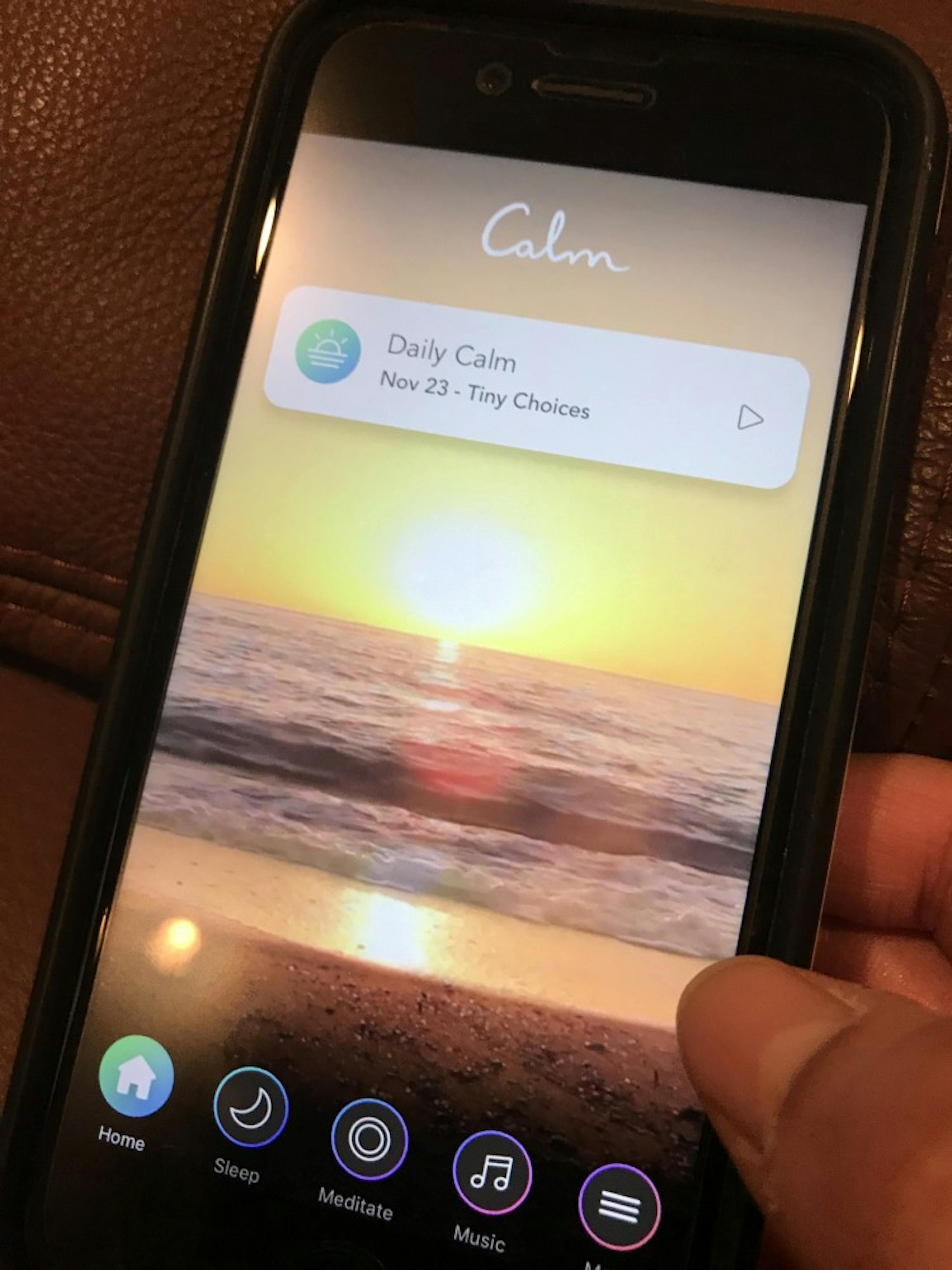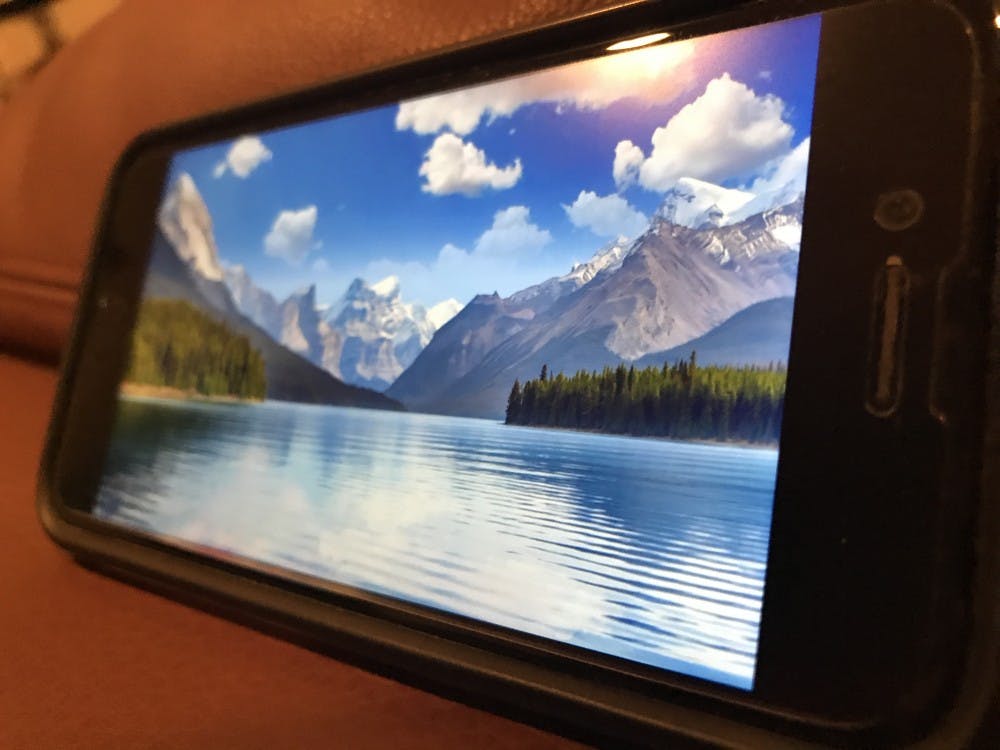Every day at 7 a.m. my phone lights up with a “mindfulness reminder” from the Calm app. The daily message, which serves as a reminder to complete a meditation, is usually a cliché — for example, “You can’t stop the waves, but you can learn to surf.” Despite the triviality of the notification, it reminds me to log onto the Calm app and complete one of its many guided meditations.
A subscription to this app costs $59.99 per month (or you can pay $299.99 for a lifetime membership). However, for Hopkins affiliates, the app is completely free. Once I learned of the app’s typically steep price, I had to try it to see what some people choose to spend $299.99 on.
The first time I logged onto the app, I was almost overwhelmed by the variety of guided meditations. Topics include working on stress management, focusing, happiness, self-esteem, mindful eating, calming anxiety, deep sleep and many others.
Like any stereotypical Hopkins student, I was drawn to the program titled, “7 Days of Managing Stress.” Each session takes around 15 minutes to complete and consists of breathing exercises and body relaxation, with the intent of focusing one’s mind. The peaceful voiceover asks you to think deeply about the root cause of stress in your life and tells you, for those 15 minutes, to simply let go.
In reality, the Calm app works. The programs are intended for amateur meditators, overwhelmed students and people seeking a way to release their stress without having to leave their rooms.
I remember the first time I fell into a deep meditation. It was a wonderful, much-needed break from the stress of writing papers, working against deadlines and worrying about balancing my social life. Falling into a deep meditation and coming out of it feeling like I can tackle my many obligations beats many other stress releases in my life (no, not including sex or binge-watching The Office).

The app helped me transition to life at college in many other ways. One of the biggest issues I faced during freshman year was figuring out how to eat. Whereas my parents warned me about gaining the infamous “freshman 15,” instead I lost 10 pounds that winter. My energy level dropped, and I frequently skipped classes because I couldn’t find the motivation to go to.
Eventually I began listening to the Calm app’s “Mindful Eating Series,” which helped me to understand the importance of thinking about what I put into my body. Although it was a slow process, I gradually began to eat more meals a day and rely less on caffeine.
Although the Calm app is definitely something I can imagine my soul-cycling, green juice-drinking friends back home in Los Angeles doing — not necessarily my Brody-bound peers — I would highly recommend students take advantage of this free offer.
My rationale is this: It’s the time of our lives where we should be focused on the way we think, what induces anxiety and what makes us happy. For many of us, this is also a period of change, as it’s the first time we’re living away from our parents, feeding ourselves and tackling an obscene amount of homework. If we don’t take 15 minutes per day to check-in with ourselves, it is easy to lose track of personal goals and even the reason we came to Hopkins in the first place.
Of course, an app or meditation is not intended as a substitute for proper therapy or taking prescribed medication.
But it helps, and it is something you can take into your own hands. I have days where I know I have a thousand things I need to do, and I can’t find the motivation to get out of bed. Instead of telling myself to go back to sleep, leaving myself with 10 minutes to get ready for class, I now see a reminder to log onto the Calm app.
The quotations telling me to “make time for what matters” are silly but effective. They remind me to slow down, to live mindfully and with purpose.

















